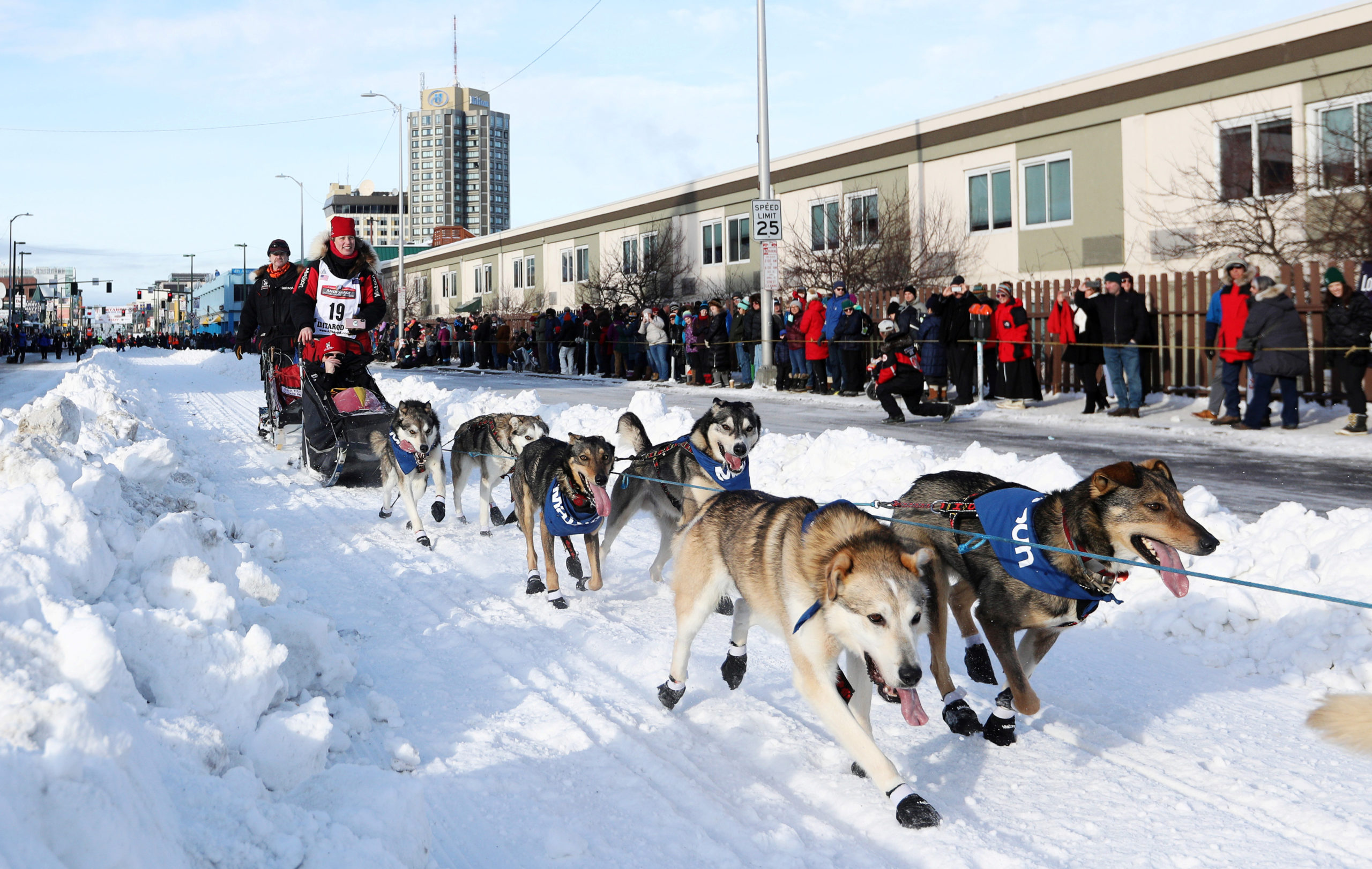Iditarod mushers can expect deep snow this year
After several unusually warm winters in recent years which left parts of the trail bare, racers can expect an "epic" snow pack, an organizer said.

ANCHORAGE — The world’s most famous dog racing contest got underway on Saturday when 57 mushers and their canine teams lined up in downtown Anchorage to start the Iditarod Trail Sled Dog Race, with expectations for heavy snow on the trail this year.
The untimed and ceremonial 11-mile (18-kilometer) jaunt in Alaska’s biggest city kicked off the 1,000-mile race into the wilderness. The race started in earnest on Sunday in the small community of Willow north of Anchorage. The winner is expected to arrive in the Bering Sea town of Nome about nine days later.
The winner will take home about $55,000, with the exact amount yet to be determined, and a new truck, said Chas St. George, the Iditarod’s chief operations officer.
All mushers can expect “an epic amount of snow” on the trail this year, said Mark Nordman, the race’s director and marshal.
In recent years, Iditarod racers have contended with unusually warm winter conditions that left parts of the trail bare. Not so in 2020, thanks to a reversion to cold winter weather.
“The snow in many places is well over my head,” Nordman said at a news conference on Wednesday.
Bountiful snow brings its own challenges, including increased risks of encounters with moose that prefer packed-down snow to walking through deep drifts, Nordman said.
Other challenges for the Iditarod have been the loss of corporate sponsors and continued attacks from animal-rights activities.
On Monday, People for the Ethical Treatment of Animals took credit for convincing Alaska Airlines, a 40-year Iditarod sponsor, to end its support of the race after this year.
“PETA and every kind person opposed to cruelty to dogs is flying high over Alaska Airlines’ decision to stop sponsoring the Iditarod,” Tracy Reiman, PETA’s executive vice president, said in a statement.
Rob Urbach, who took over as chairman of the Iditarod race committee after six years at the helm of USA Triathlon, said PETA is portraying the sled dog race inaccurately.
“It’s totally fake news. It’s a huge disinformation campaign,” he said.
The Iditarod has created new ways to bring in revenue and fans, such as an “Iditarod Trifecta” that allows people to bet on the race outcome, and an expansion of its online video subscription service, he said.
That service is gaining users far from Alaska.
“We’re seeing good numbers out of China,” he said.